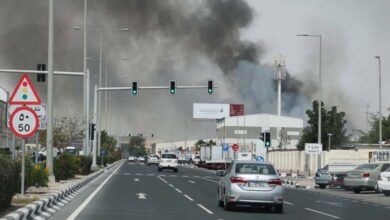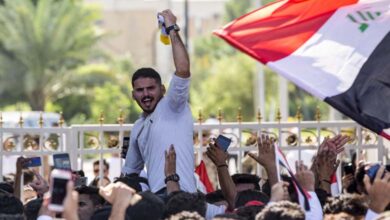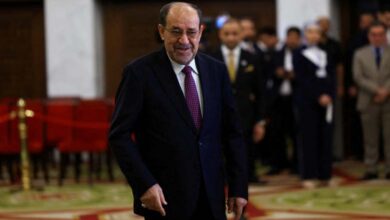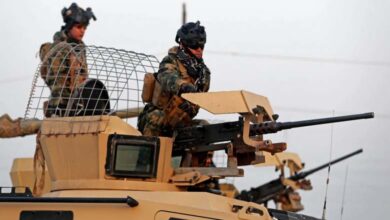Saudi Arabia Warns Iran of Trump’s Waning Patience
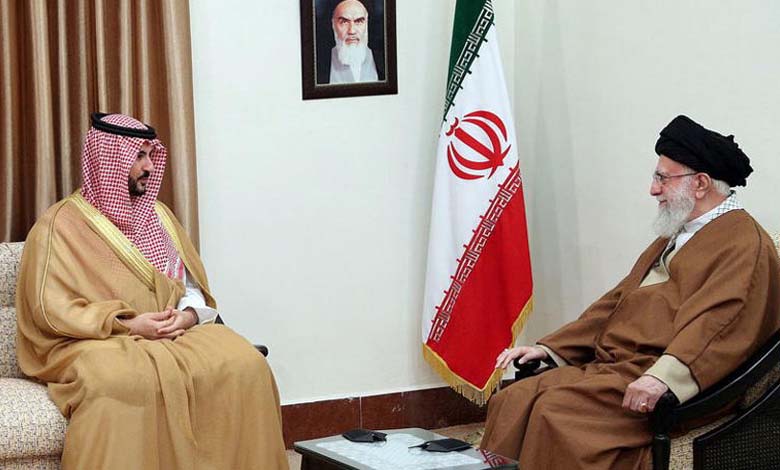
Prince Khalid bin Salman visited Tehran and informed senior Iranian officials that Trump’s team is eager to reach a swift agreement, and that the diplomatic window is closing quickly.
Riyadh urged Tehran to finalize a new nuclear deal with Washington before President Donald Trump’s patience runs out, warning of the potential outbreak of war with Israel. The warning is part of Saudi Arabia’s efforts to stabilize the region and prevent a renewed escalation.
-
Opening embassies… the latest points of convergence between Saudi Arabia and Iran
-
Saudi Arabia and Iran… Where have the steps of rapprochement reached?
Saudi Defense Minister Prince Khalid bin Salman delivered a clear message to Iranian officials last month: Trump’s offer for serious nuclear negotiations is the only path to avoid war with Israel.
According to two Gulf sources close to government circles and two Iranian officials, King Salman (89), concerned about rising regional instability, dispatched his son Prince Khalid to caution Supreme Leader Ayatollah Ali Khamenei.
Iranian President Massoud Pezeshkian, Chief of Staff Mohammad Bagheri, and Foreign Minister Abbas Araghchi attended the confidential meeting on April 17 at Tehran’s presidential complex.
-
Saudi Arabia and Iran take a step towards resuming relations… Details
-
Attempts to spoil it… Why Qatar and Iran are waiting for Biden’s visit to Saudi Arabia
Although the media covered Prince Khalid’s visit (aged 37), the content of the confidential message from King Salman had not been revealed until now.
The four sources confirmed that Prince Khalid — formerly ambassador to Washington during Trump’s first term — warned that the U.S. president does not tolerate prolonged negotiations.
Trump had unexpectedly proposed direct talks with Iran to contain its nuclear program in exchange for easing sanctions. He revealed this in the presence of Israeli PM Benjamin Netanyahu, who was seeking American support for possible strikes on Iranian nuclear sites.
-
Iran Seeks to Regain Influence Through a Regional Nuclear Fuel Alliance
-
Washington Drops Normalization Condition with Israel in Response to Saudi Nuclear Demands
Prince Khalid informed Iranian officials that Trump’s team seeks a quick deal and that diplomacy won’t remain an option for long. Gulf sources said the prince emphasized it’s better to reach an agreement than risk an Israeli strike if talks collapse.
A senior Western diplomat involved in the discussions added that Prince Khalid stressed how the region — already scarred by recent conflicts in Gaza and Lebanon — cannot afford another escalation.
The visit was the first by a senior Saudi royal to Iran in over two decades. Riyadh and Tehran have long competed for regional influence, often backing opposing factions in proxy wars, though China helped them re-establish diplomatic ties in 2023.
-
Tehran and Washington Resume Nuclear Talks Under the Pressure of Red Lines
-
Trump Gives Iran Two Months to Negotiate a New Nuclear Deal
Iran’s regional standing has weakened due to Israeli strikes on allies Hamas in Gaza and Hezbollah in Lebanon, as well as the loss of Syrian ally Bashar al-Assad. Sanctions have also heavily impacted its oil-dependent economy.
Mohanad Hage Ali of the Carnegie Middle East Center in Beirut noted that Iran’s weakness has allowed Riyadh to pursue diplomatic influence and reduce conflict risks.
During the meeting, Pezeshkian reportedly said Iran seeks sanctions relief through a deal, but Iranian officials also expressed concerns over Trump’s unpredictable stance — shifting from limited uranium enrichment to full dismantlement demands.
-
Iran intercepts U.S. spy plane amid continued state of maximum alert
-
U.S. Strikes Yemen… Russia Calls for Dialogue, and Iran Threatens
Trump also threatened military action if diplomacy fails. One Iranian source noted that while Tehran wants an agreement, it won’t sacrifice its enrichment program just to please Trump.
Five rounds of U.S.–Iran negotiations have occurred, but core issues like enrichment remain unresolved.
Reuters reported Tehran might pause enrichment if the U.S. unfreezes Iranian assets and acknowledges Iran’s right to civilian nuclear use under a broader political deal — though Iran’s foreign ministry denied this.
-
“A Russian Seat” in the Nuclear File… Talks with Iran’s Ambassador
-
The “Right-Hand Man” of Iran’s President… Zarif Confirms His Resignation and Reveals the Reasons
White House spokeswoman Caroline Leavitt stated, “Trump has made it clear: either make a deal or face severe consequences. The world is taking him seriously — as it should.”
Trump said he warned Netanyahu against actions that could derail nuclear talks, adding that the two sides are “very close to a solution.”
During Trump’s recent four-day Gulf tour, Saudi Arabia solidified its position as the lead player in a new Sunni bloc filling the void left by Iran’s declining influence. Crown Prince Mohammed even brokered a reconciliation between Trump and Syria’s new Sunni president, Ahmed Shar’a.
Prince Khalid also urged Iran to reassess its regional policies, saying Riyadh would welcome such a shift.
-
Mystery Surrounding Khamenei’s Health Revives Rumors of His Death and Succession
-
“More for More”… Can It Unlock Iran’s Nuclear Code?
While not directly blaming Iran, the Saudi minister expressed concern about repeat drone attacks like the 2019 strikes on Aramco, which Riyadh attributed to Iran and its Houthi allies — though Tehran denies responsibility.
Iranian officials acknowledged some influence over the Houthis but claimed they cannot fully control them.
Decades of hostility between Saudi Arabia and Iran have destabilized the Gulf and fueled regional conflicts. The 2023 rapprochement, driven in part by Saudi Arabia’s economic ambitions, increased bilateral contact.
-
The Potential Return of Trump to Power: A Nightmare for Iran
-
Iran explicitly warns the U.S. of the consequences of supporting an Israeli attack on it
However, diplomats and regional experts say Iran is still not viewed as a reliable peace partner and may threaten regional economic aspirations.
Prince Khalid warned that any provocation of Washington would likely trigger a harsher response from Trump than from predecessors Biden or Obama.
He also assured Tehran that Saudi Arabia would not allow the U.S. or Israel to use its land or airspace for military action against Iran.
-
Iranian Parliament Speaker: “The Main Pillar of the Lebanese People is Leader Ali Khamenei!”
-
America Approves Two Arms Deals for the UAE and Saudi Arabia
Meanwhile, Western powers are preparing to pressure the IAEA Board of Governors to officially declare Iran non-compliant with nuclear safeguards — a first in nearly 20 years — likely complicating talks further.
The U.S. and European “E3” (UK, France, Germany) have proposed a resolution demanding explanations for uranium traces found at undeclared sites. A comprehensive IAEA report is expected by June 9.
Diplomats anticipate a strong report, followed by a draft resolution from the U.S. declaring Iran in violation. However, it remains unclear whether the UN Security Council will act, or how.


